- Home
- M. L. Buchman
Reaching Out at Henderson's Ranch
Reaching Out at Henderson's Ranch Read online
Reaching Out at Henderson’s Ranch
a Henderson’s Ranch story
by M. L. Buchman
1
He reached to console the frightened villager child.
Stan Corman knew it was dangerous, but he couldn’t stop his hand. His left hand kept moving closer though some part of him screamed for it to withdraw, to fall by his side.
The boy, no more than five, could have been his nephew Jack. They had the same tousled dark hair, though Jack’s skin was far lighter.
His hand continued to reach.
Deep inside himself, Stan cursed and fought, but his arm moved without his willing it.
No control.
Except his eyes. Though his hand remained out of his control, he could see with his eyes.
Stan could see the little boy’s fear—his eyes so wide that the dark irises were almost lost in the vast field of white. He’d knelt so that they were eye to eye. Then Stan looked down and he could see his dog Lucy abruptly sit, close in front of the boy.
Lucy wasn’t supposed to sit without a command unless—
Stan’s hand brushed the boy’s arm.
Lucy whined.
She was a military war dog and was trained to sit and be still when she smelled—
The boy disappeared in a cloud of light that slammed Stan into the void.
The scream tearing out of his throat ripped him from nightmare to darkness.
Absolute darkness…except for the afterimage of an exploding boy etched so deeply on his retina that it was all he’d been able to see when he woke in the hospital.
Now, months away, he tried to rub at his eyes as his pulse peaked somewhere past skyrocket and began a slow fall that Stan knew from experience would banish any hope of sleep for hours.
But there was no hand to rub his eyes with, only a fleshy stump remained of his left hand. His other hand was tangled in the sheets and for a long awful moment he was sure he had lost that one as well. Before he could scream again, he managed to pull it free and pressed his hand to his face.
Five.
He counted four fingers and a thumb pressed from jaw to forehead. Flesh and blood. He could feel them. Five. His right hand still remained intact.
As did the image of the exploding boy.
Stan’s life had been saved because the boy’s parents—or whatever total bastard had wired the kid up—had rigged the explosives too low. The alignment of explosive and Stan’s life had been almost entirely shielded by Lucy’s body.
The helmet had protected his head, the goggles his eyes, and except for nasty scarring on his left cheek, the rest of him had been behind armor and dog. Lucy had taken the hit and like a nuclear blast burn image, the shape of her had been imprinted on his lower face and chest in blood and bone fragments. The rest had healed: the dozen broken ribs where parts of Lucy had slammed into him, the concussion from the wall he’d been thrown into so hard that even his helmet hadn’t saved him from that. They’d managed to save his left calf and knee with screws and titanium plates, but had warned him it would always be fragile. Just what every SEAL wanted to be labeled: fragile.
He lay in a cot. His pulse had slowed enough—though the rate of his breathing hadn’t yet—for him to feel the hard chill of the cabin. The fire had gone out, which meant it was past three a.m.
It was a good sign. Usually the nightmare woke him by midnight in plenty of time to restoke the small cast iron woodstove for the long, sleepless dark watch. He considered waiting until dawn under the covers, but experience also had taught him to get up and build the fire now or the cabin would stay frosty until midday.
A North Carolina boy, his only experience with true cold before now had been on assignment. The Afghan winters had been brutal, but that’s where Special Operations said to go—so he and Lucy went.
Lucy. Shit. They’d been together for two years in-country. She was six months dead and he still missed her every damn day.
He snapped on a flashlight, for all the good it did him. All he could see right now was the little Afghan boy etched in light. The doctors insisted that it was psychosomatic rather than retinal damage because doctors made shit like that up when they didn’t know what was going on. The only part of his vision that he could use for the next hour would be in the one dark, dog-shaped patch that had been Lucy in the lower right corner of his vision.
He swung out of his bunk, tipped his head back and to the side so that he could see where he was going, and crossed to the woodstove. Grabbing the handle without a hot pad had him yelping again—not pain but a sharp, panicked sound that rang harshly in the small cabin. If he damaged his right hand he’d be beyond fucked. It was all he had left. He sucked on the slight warmth on his palm as if it was a second-degree burn, cursing the damn stove for still being hot to the touch, but not heating the cabin.
Reaching with his other hand didn’t help. The paired titanium hooks of his prosthetic arm didn’t care about the heat, but he hadn’t pulled the rig on and all he had to wave about was his fucking stump.
Fumbling toward the woodpile, which was on the side he couldn’t see, he found a small log and used it to whack the metal handle upward and swing the door open. For its duty and fine service, he chucked the log onto the few remaining embers inside.
Raising one knee, he propped a small bellows on his thigh and pinned its lower handle in place with his stump. With his remaining hand, he worked the upper handle until he coaxed a small snap of flame to life. It was bright enough to shine through the boy’s afterimage. Carefully stoking the fire, he watched the flame grow as the boy faded.
The stove wasn’t throwing much heat yet; all of the iron had cooled…except the goddamn handle. But he didn’t move away. His bare skin rippled with goosebumps, but he remained to watch the flame.
When he’d first come to this small cabin in the Montana foothills, he’d spent many nights contemplating throwing his fake arm into the fire and then himself. At first he only resisted because he knew he’d piss off the ranch owner, and you didn’t piss off a man like Mac Henderson or his son Mark.
Mac was a former SEAL—except he’d done his twenty years and retired. Being a SEAL, it was an easy bet that Mac would have followed Stan straight into hell and dragged him back to whup him good for throwing away the gift of life.
Gift of life, my ass.
It was early April. Back in North Carolina, the Sweet William would be blooming right now. The cherry blossoms would have already had their spring and the young cottonwood leaves would be unfolding to seek the sun.
Instead, he was squatting in front of a cold fire in a ramshackle cabin on the edge of the Montana wilderness surrounded by snow. It wasn’t the life he’d pictured. But the life he’d pictured had thrown him out on his ass. When he’d gone home, his mother had burst into tears every time she looked at him. His fiancé hadn’t even bothered to Dear Stan him. True love hadn’t even lasted out the month for the half-man he’d become to make it out of the hospital. His sister had forced Stan’s brother-in-law to offer him a pity-job at the bank, as if Stan would be forever helpless. Besides, there was no way he could ever survive working indoors. And young nephew Jack had taken one look at his steel hooks and run away screaming in terror—as terrified as the little boy in the Afghan village.
Then one day he’d gotten a call from his former CO to come over to Fort Bragg. It was the last place in the world for a one-armed former SEAL to be, but saying no to Lieutenant Commander Luke Altman wasn’t something a man did.
Altman had met him at the gate, which was a real favor. It saved him havin
g to kill every damn grunt who stared at the hooks sticking out of his shirt sleeve and gave him that you-ain’t-a-soldier-no-more look.
“Got someone I want you to meet.”
“I don’t need another goddamn therapist or perky wounded warrior volunteer to tell me how to live with myself.”
Altman had merely looked over at him in that long, quiet way he had and Stan shut up. Altman took him to the SWCS dining hall. It was strange to be back on the JFK Special Warfare Center and School grounds and not be ragged from their typically brutal training scenarios. He hadn’t let himself go after getting released, but he hadn’t done a decent work-out either—not with one fucking hand. The month on his back had cost him a lot of muscle and the PT hadn’t really put it back on—weird to trade the military’s Physical Training acronym (or Puking Torture depending on who was leading the drill) in for medical’s Physical Therapy, which told him just how civilian he’d become.
They grabbed trays and went down the line. Stan had learned enough about working his hooks to not need any help. Actually, having been left-handed before the injury, he was almost better with the hooks than with his clumsy right hand. It had become almost natural that when he extended his arm, or flexed his opposite shoulder, the two hooks separated and when he withdrew or relaxed they clamped together tight. Stan used them to load up on he didn’t care what and went to sit with another pair of civilians—the ex-military kind by the look of them.
“Stan Corman. This is Mark Henderson and Emily Beale. Former Night Stalkers who founded the 5D.”
Okay, that got Stan’s attention. The Night Stalkers Special Operations Aviation Regiment specialized in helicopter transport for soldiers like him—like he’d been. He’d flown with SOAR plenty of times, but never with the 5D. They were practically legendary and were always with the very top teams, Delta and DEVGRU. He hadn’t known one was a woman, but nothing surprised him about the 5D. If these were the founders… But shit! They were still intact. What was their goddamn excuse?
“They,” Altman was still yammering, “have a place that they’re going to tell you about. His dad runs the ranch and Mac trained me back in the day. Stan, you’re going to shut up and listen.”
Shutting up and listening had never been his top skill, but not arguing with his CO—former or otherwise—had been too ingrained, especially when it was SEAL Commander Luke Altman.
And that meeting had led to him squatting naked in front of a woodstove at the far corner of Henderson’s Ranch in snowy April.
The dawn had happened at some point while he watched and fed the fire. The purging by flame no longer beckoned to him, but its warmth didn’t comfort him either.
He was never going to fit back in. His dog was gone. Two of his team also had been close enough that they’d gone home in a box. The other two had gone down in a hail of crossfire that filled two more boxes. Left for dead; he’d been the “lucky one.”
The lucky one.
No team. No unit. No longer a soldier. He’d lost fiancé, family, and town.
There was no one who wanted him. No place he belonged. The dead end was staring him in the face and there was no reverse gear out of it. His future was bricked in as surely as the sides of the glowing iron box filled with ashes and fire. Who would give a shit if the flames did consume him? Easy answer. The future held noth—
A knock sounded on the cabin door. The sudden sound where there shouldn’t be any sent him diving for cover behind the woodpile. All it earned him was a couple of splinters before he recovered and remembered where he was.
Furious with himself for sliding back into the black hole of panic and depression, he strode to the door and reached for it with his stump, then yanked it open with his right hand and a snarl.
Ama Henderson stood there with her horse tethered to the porch rail behind her. Mac’s wife was a tall, magnificent woman. Her skin was still dark and smooth, but her hair had turned that dark steel-gray that was so unique to her Cherokee heritage.
“May I come in?”
It was a several-hour ride from the main house to the cabin that they’d given him; a damned cold one. The sun…he’d lost time again. It was a couple of hours above the snowy horizon in the crystal blue that was a Montana winter sky.
He held the door wider and the chill wind wrapped around him and reminded him that he was naked.
“Shit! Excuse me.” He left Ama to close the door as he dragged on some clothes as well as he could. They were icy cold because he’d dropped them on the floor last night rather than on the chair by the stove. Without his arm on, it proved impossible to pull on underwear and pants.
Hating it, he stood there naked and dragged on a t-shirt first. He couldn’t stand people seeing him put on his arm—not even the docs who’d fit it and trained him—but he had no choice. He found the thin cotton sock and pulled it up over his stump, careful to smooth out any wrinkles despite his haste. Then he unsnarled the harness, slipped his stump through one loop and into the socket of the prosthesis. With a practiced lean, he managed to get his good arm through the harness’ other loop on his first try, thank god, and shrug it on. Now able to control the spring action of the paired hooks, he was able to drag on underwear, socks, and pants. A heavy jacket against the still cool cabin—he hadn’t closed the woodstove’s door and damped the fire to get good heat from it—and then he jammed his feet into his boots, though he’d be damned if he’d demonstrate for anyone how clumsy he still was at lacing them.
When he turned back, Ama was sitting at the small table looking down into a bundle she’d been carrying. Kind enough to offer him privacy while he struggled.
“Sorry, Ama. Can I offer you some coffee?”
He kicked the woodstove door shut, almost losing one of his unlaced boots into the fire in the process.
“No. I have come to offer you something.”
As he’d learned was typical with her, she didn’t say much but when she did, there was no point in either interrupting or attempting to hurry her to the point. So, he sat in the other chair and waited.
She looked at him with her intensely dark eyes. “You have decided that you don’t want to stay at the main compound. I can respect that. There are times that a man must face his future alone. But there is also a time for that to end. My husband would leave you until spring to stew in your own thoughts. By then the pot will boil over. I do not choose to leave you so long.”
He readied his protests that he wasn’t fit to be neighbor to man or beast. His screams alone as he rose from each night’s dreams were proof enough of that. What if they never ended? What would he do then?
Apparently done with what she had to say, she stood and headed for the door leaving her bundle on the table.
“Ama. I—” he called after her, but the bundle on the table moved. In the moment of his distraction, she was gone out the door. He knew that even if he rushed after her, she would somehow be gone, departing as quietly across the snow as she’d arrived.
The bundle moved again.
Then a nose stuck out the top.
It sniffed the air once, twice, then the rest of the head emerged and the puppy turned to look at him. Its dark face wore the goofy grin that could only be a Malinois—the same breed as almost every war dog. The same breed as Lucy.
Stan stared at it in horror, not even able to tear his eyes away to look at the door where Ama Henderson had left him.
A dog.
He couldn’t even care for himself; how was he supposed to care for a dog?
The puppy yipped at him and he flinched.
It wasn’t fair. He would end up killing it just as his one mistake had killed every other good thing around him.
2
Freshly weaned and only partially housebroken, the dog soon had Stan far more occupied than he’d been on any day in his three months at the cabin.
His usual day’s activity
was to work on fixing up the cabin—that’s how he was paying his rent. It was a fishing cabin in the summer for tourists and it showed. Years of wear and tear had battered the place hard. He’d started with the kitchen. Figuring out how to hold a measuring tape had been a challenge at first but was trivial compared to saws and hammers. With practice, he was getting the hang of it and had made slow but steady progress. Something that had been one motion might now be three, but there was no rush. And once he figured out how to do each task, he moved along well enough. Except the screwdriver was going to send him to the nuthouse; he just didn’t have the manual dexterity retrained into his right hand yet.
But the first thing the puppy did once he’d lowered it to the floor—Stan used the blanket the pup had come in so that he didn’t have to touch it—was to race around the room about twenty times and then pee on Stan’s only clean pair of socks. A second later, the furry whirlwind had chomped down on the leg of a pair of Stan’s jeans and begun wrestling them into submission.
He’d forgotten what an insane chewing machine a young Malinois was. He spent the next half hour racing to keep a step ahead of the puppy. He’d pick up one thing and the puppy would discover another. His hand was as big as it was or he’d have swatted the damn thing aside to just give him a single goddamn moment of peace. When his leather tool belt had become the next great find, Stan gave up and let him have at it.
Him. At least Ama had given him that bit of kindness. If it had been a female Malinois, he didn’t know if he could have looked at it without breaking down. But like Lucy, it had classic markings. A little smaller than a German Shepherd, instead of a black Shepherd back, it had a black face. And instead of growing into its paws, a Malinois grew into its upright ears and this dog was going to be big—which meant the puppy looked like he was half rabbit.
When the puppy had finally convinced the leather tool belt just who was the king of the cabin, he ambled over and plunked his bottom down beside Stan’s boot and began tipping its head one way and another as it inspected the laces.

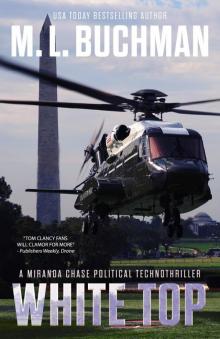 White Top
White Top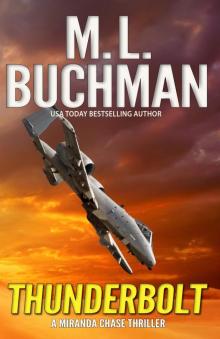 Thunderbolt
Thunderbolt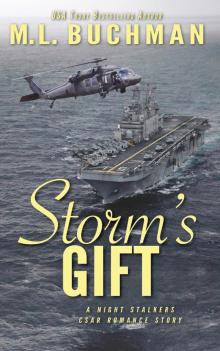 Storm's Gift
Storm's Gift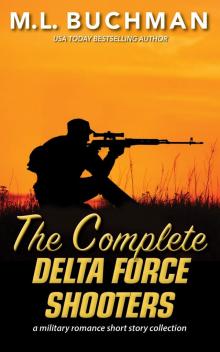 The Complete Delta Force Shooters
The Complete Delta Force Shooters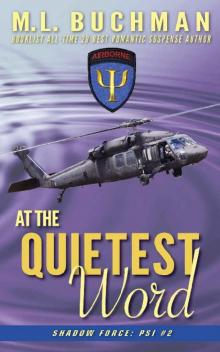 At the Quietest Word (Shadowforce: Psi Book 2)
At the Quietest Word (Shadowforce: Psi Book 2) At the Slightest Sound
At the Slightest Sound Dilya's Christmas Challenge
Dilya's Christmas Challenge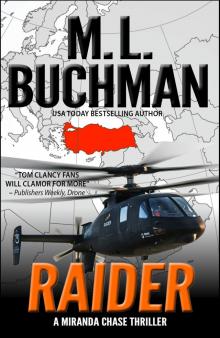 Raider
Raider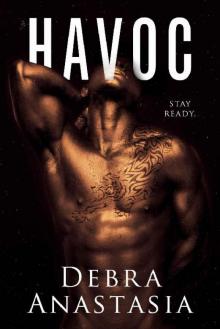 Havoc
Havoc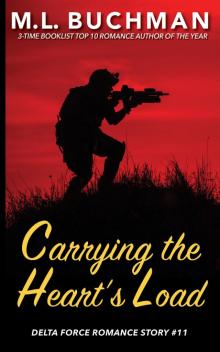 Carrying the Heart's Load
Carrying the Heart's Load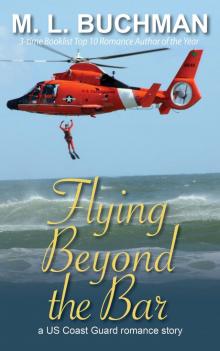 Flying Beyond the Bar
Flying Beyond the Bar Firelights of Christmas
Firelights of Christmas Where Dreams Are Well Done
Where Dreams Are Well Done Nathan's Big Sky
Nathan's Big Sky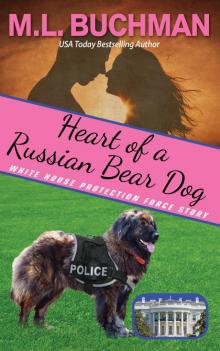 Heart of a Russian Bear Dog
Heart of a Russian Bear Dog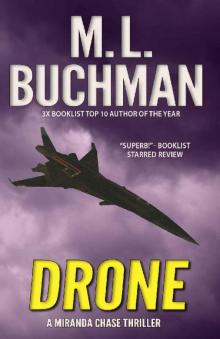 Drone: an NTSB / military technothriller (Miranda Chase Book 1)
Drone: an NTSB / military technothriller (Miranda Chase Book 1) Flower of Destiny
Flower of Destiny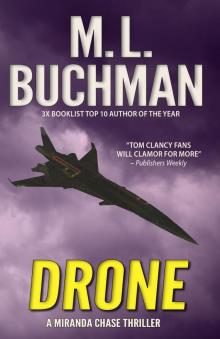 Drone
Drone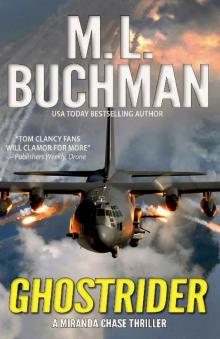 Ghostrider: an NTSB-military technothriller (Miranda Chase Book 4)
Ghostrider: an NTSB-military technothriller (Miranda Chase Book 4)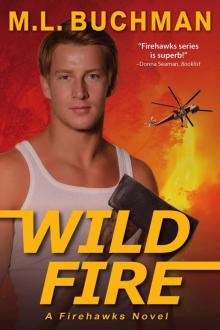 Wild Fire
Wild Fire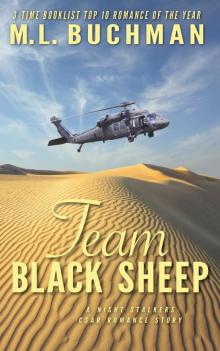 Team Black Sheep
Team Black Sheep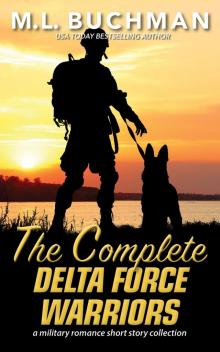 The Complete Delta Force Warriors
The Complete Delta Force Warriors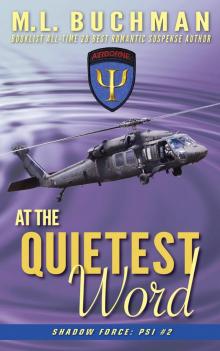 At the Quietest Word
At the Quietest Word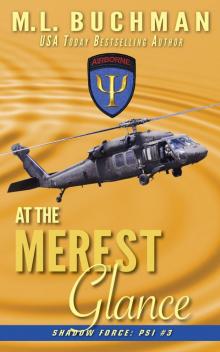 At the Merest Glance
At the Merest Glance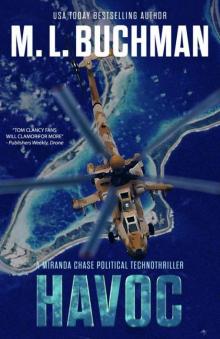 Havoc: a political technothriller (Miranda Chase Book 7)
Havoc: a political technothriller (Miranda Chase Book 7)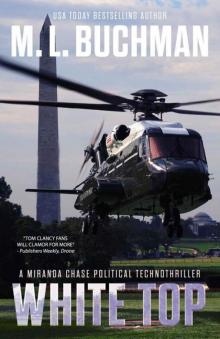 White Top: a political technothriller (Miranda Chase Book 8)
White Top: a political technothriller (Miranda Chase Book 8) Between Shadow and Soul
Between Shadow and Soul Island Christmas
Island Christmas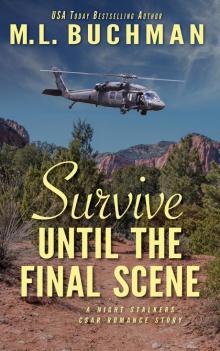 Survive Until the Final Scene
Survive Until the Final Scene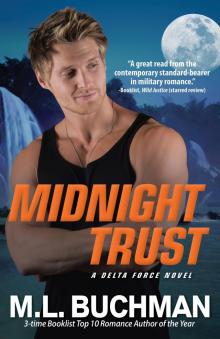 Midnight Trust
Midnight Trust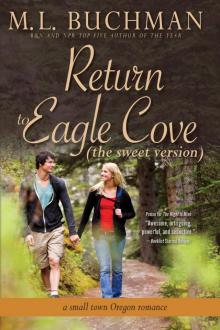 Return to Eagle Cove
Return to Eagle Cove Where Dreams Reside
Where Dreams Reside Honor Flight
Honor Flight Where Dreams Are Sewn
Where Dreams Are Sewn The Complete Hotshots
The Complete Hotshots Condor
Condor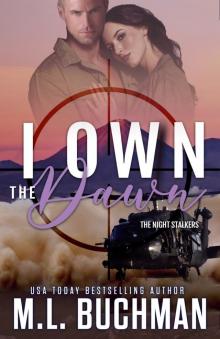 I Own the Dawn
I Own the Dawn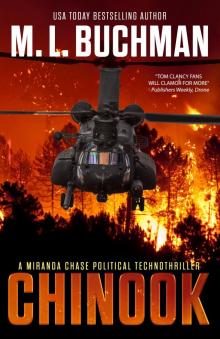 Chinook
Chinook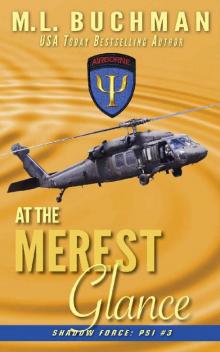 At the Merest Glance: a military paranormal romance (Shadowforce: Psi Book 3)
At the Merest Glance: a military paranormal romance (Shadowforce: Psi Book 3) Since the First Day
Since the First Day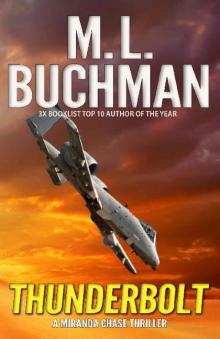 Thunderbolt: an NTSB / military technothriller (Miranda Chase Book 2)
Thunderbolt: an NTSB / military technothriller (Miranda Chase Book 2) For Her Dark Eyes Only
For Her Dark Eyes Only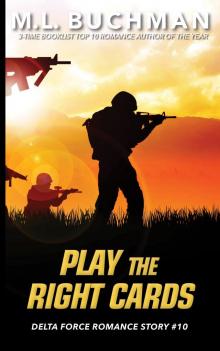 Play the Right Cards
Play the Right Cards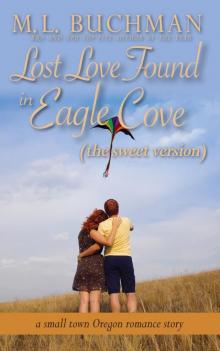 Lost Love Found in Eagle Cove
Lost Love Found in Eagle Cove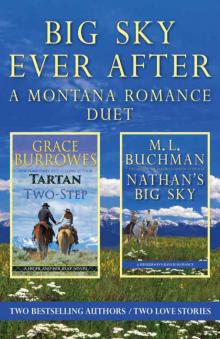 Big Sky Ever After: a Montana Romance Duet
Big Sky Ever After: a Montana Romance Duet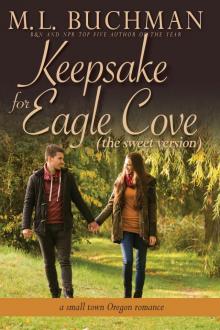 Keepsake for Eagle Cove
Keepsake for Eagle Cove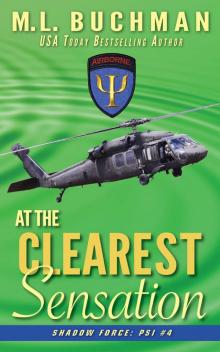 At the Clearest Sensation
At the Clearest Sensation The Ides of Matt 2015
The Ides of Matt 2015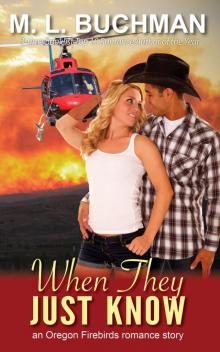 When They Just Know
When They Just Know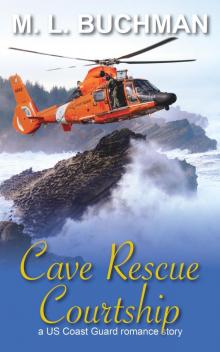 Cave Rescue Courtship
Cave Rescue Courtship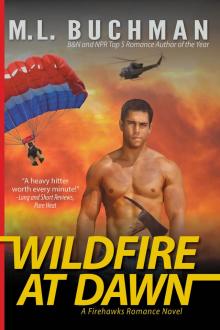 Wildfire at Dawn
Wildfire at Dawn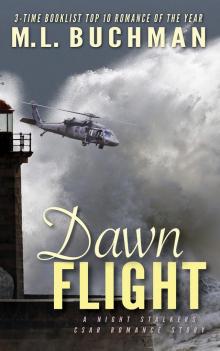 Dawn Flight
Dawn Flight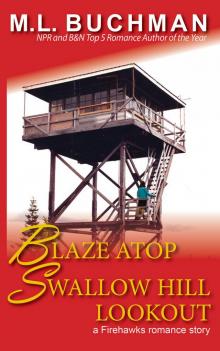 Blaze Atop Swallow Hill Lookout
Blaze Atop Swallow Hill Lookout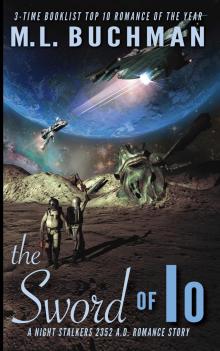 The Sword of Io
The Sword of Io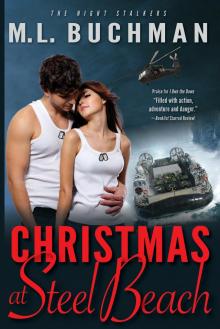 Christmas at Steel Beach
Christmas at Steel Beach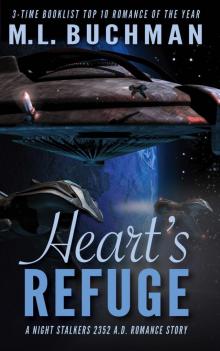 Heart's Refuge
Heart's Refuge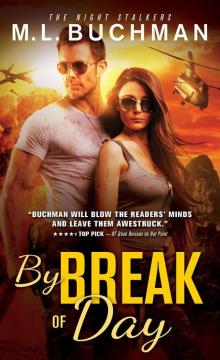 By Break of Day (The Night Stalkers)
By Break of Day (The Night Stalkers)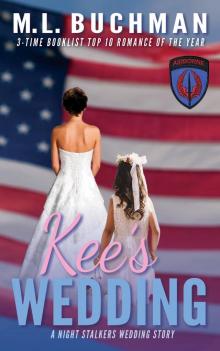 Kee's Wedding
Kee's Wedding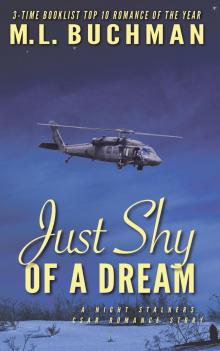 Just Shy of a Dream
Just Shy of a Dream Path of Love
Path of Love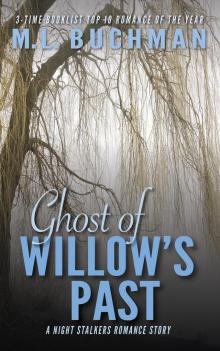 Ghost of Willow's Past
Ghost of Willow's Past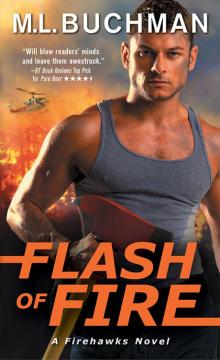 Flash of Fire
Flash of Fire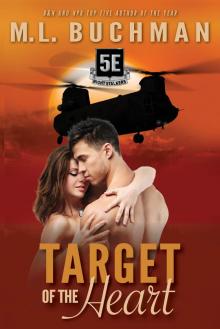 Target of the Heart
Target of the Heart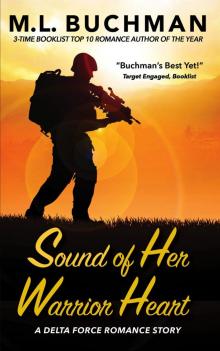 Sound of Her Warrior Heart
Sound of Her Warrior Heart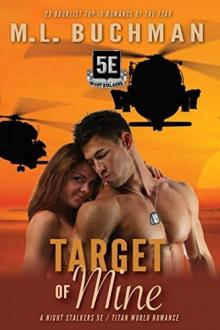 Target of Mine: The Night Stalkers 5E (Titan World Book 2)
Target of Mine: The Night Stalkers 5E (Titan World Book 2) The Complete Where Dreams
The Complete Where Dreams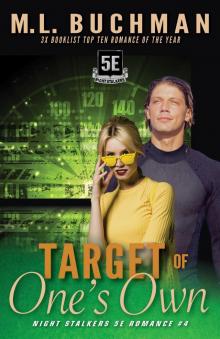 Target of One's Own
Target of One's Own For All Their Days
For All Their Days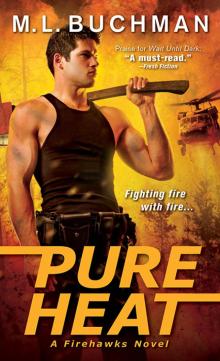 Pure Heat
Pure Heat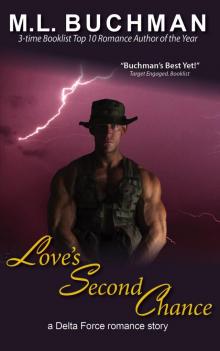 Love's Second Chance
Love's Second Chance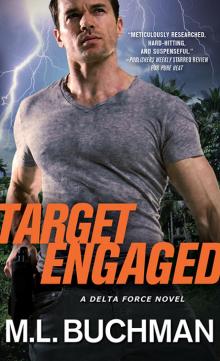 Target Engaged
Target Engaged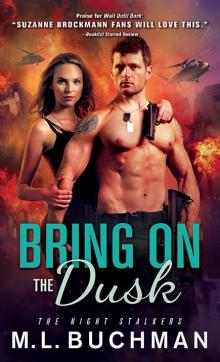 Bring On the Dusk
Bring On the Dusk Wait Until Dark (The Night Stalkers)
Wait Until Dark (The Night Stalkers)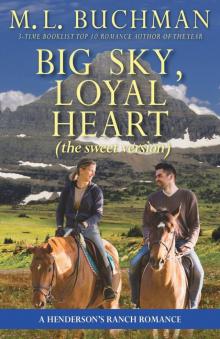 Big Sky, Loyal Heart
Big Sky, Loyal Heart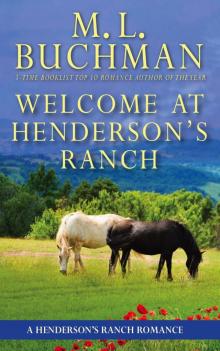 Welcome at Henderson's Ranch
Welcome at Henderson's Ranch Damien's Christmas
Damien's Christmas Flight to Fight
Flight to Fight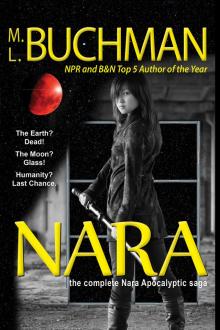 Nara
Nara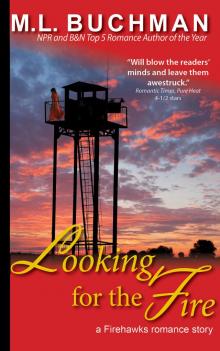 Looking for the Fire
Looking for the Fire Love Behind the Lines
Love Behind the Lines Peter's Christmas
Peter's Christmas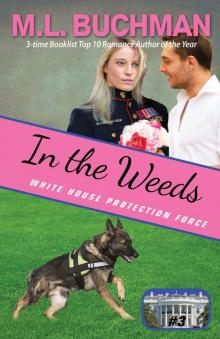 In the Weeds
In the Weeds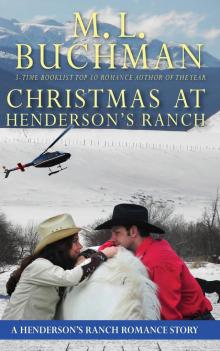 Christmas at Henderson's Ranch
Christmas at Henderson's Ranch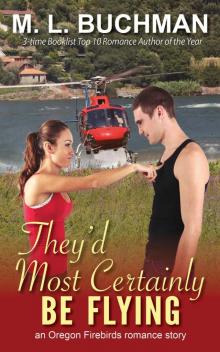 They'd Most Certainly Be Flying
They'd Most Certainly Be Flying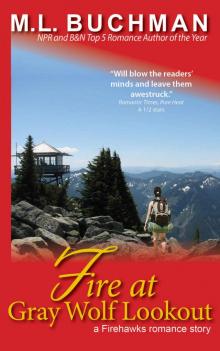 Fire at Gray Wolf Lookout (Firehawks Book 8)
Fire at Gray Wolf Lookout (Firehawks Book 8)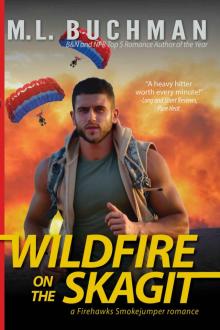 Wildfire on the Skagit (Firehawks Book 9)
Wildfire on the Skagit (Firehawks Book 9)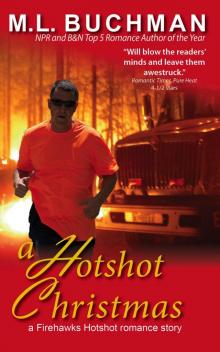 A Hotshot Christmas
A Hotshot Christmas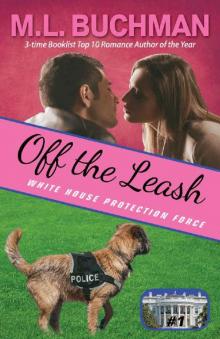 Off the Leash
Off the Leash Where Dreams Books 1-3
Where Dreams Books 1-3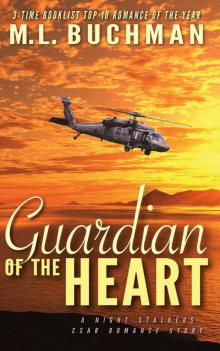 Guardian of the Heart
Guardian of the Heart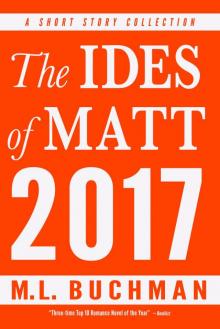 The Ides of Matt 2017
The Ides of Matt 2017 Where Dreams Unfold
Where Dreams Unfold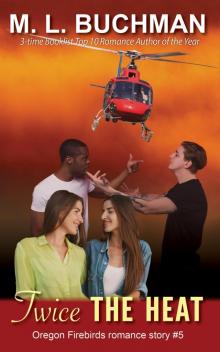 Twice the Heat
Twice the Heat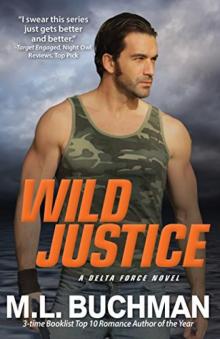 Wild Justice (Delta Force Book 3)
Wild Justice (Delta Force Book 3) Flying Over the Waves
Flying Over the Waves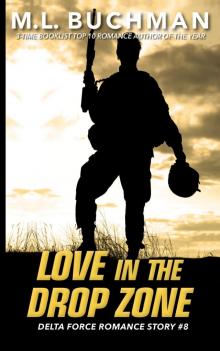 Love in the Drop Zone
Love in the Drop Zone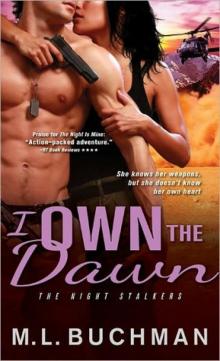 I Own the Dawn: The Night Stalkers
I Own the Dawn: The Night Stalkers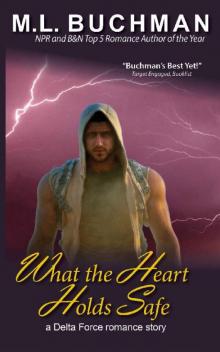 What the Heart Holds Safe (Delta Force Book 4)
What the Heart Holds Safe (Delta Force Book 4) The Christmas Lights Objective
The Christmas Lights Objective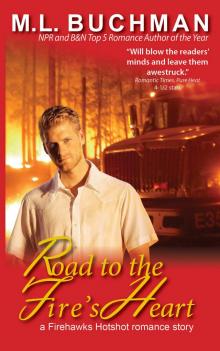 Road to the Fire's Heart
Road to the Fire's Heart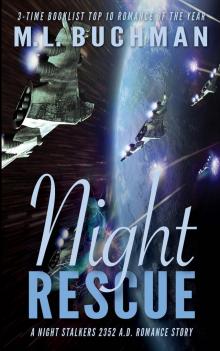 Night Rescue
Night Rescue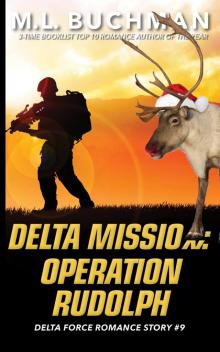 Delta Mission: Operation Rudolph
Delta Mission: Operation Rudolph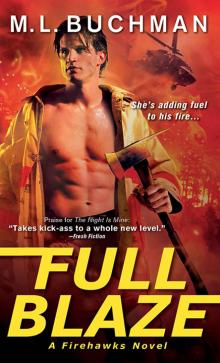 Full Blaze
Full Blaze Night Is Mine
Night Is Mine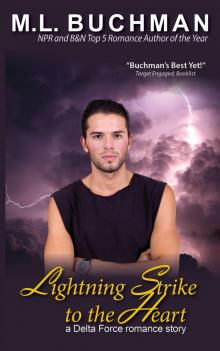 Lightning Strike to the Heart
Lightning Strike to the Heart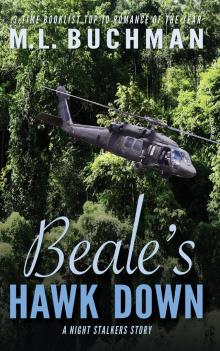 Beale's Hawk Down
Beale's Hawk Down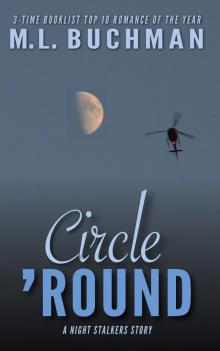 Circle 'Round
Circle 'Round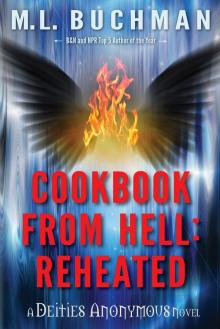 Cookbook from Hell Reheated
Cookbook from Hell Reheated Zachary's Christmas
Zachary's Christmas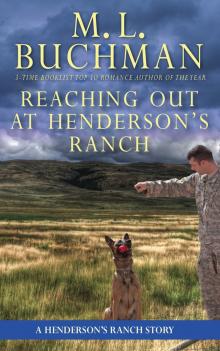 Reaching Out at Henderson's Ranch
Reaching Out at Henderson's Ranch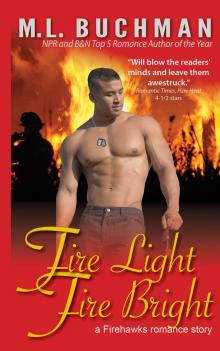 Fire Light Fire Bright
Fire Light Fire Bright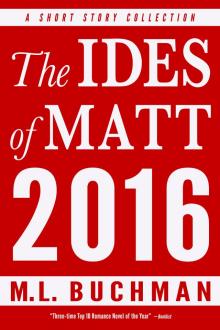 The Ides of Matt 2016
The Ides of Matt 2016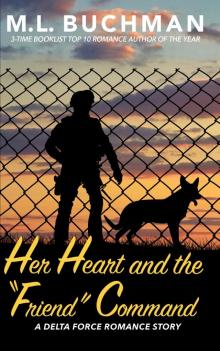 Her Heart and the Friend Command
Her Heart and the Friend Command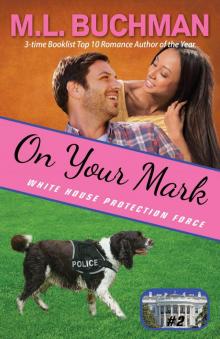 On Your Mark
On Your Mark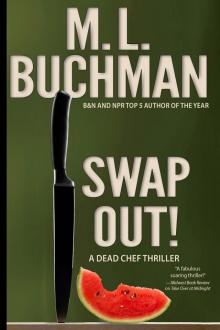 Swap Out!
Swap Out! Heart of the Cotswolds: England
Heart of the Cotswolds: England The Phoenix Agency_The Sum Is Greater
The Phoenix Agency_The Sum Is Greater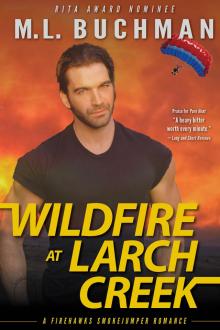 Wildfire at Larch Creek
Wildfire at Larch Creek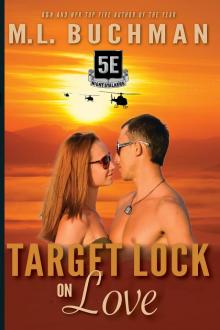 Target Lock On Love
Target Lock On Love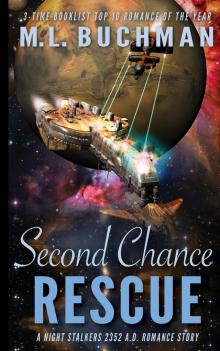 Second Chance Rescue
Second Chance Rescue Where Dreams Are Written
Where Dreams Are Written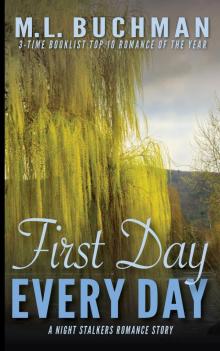 First Day, Every Day
First Day, Every Day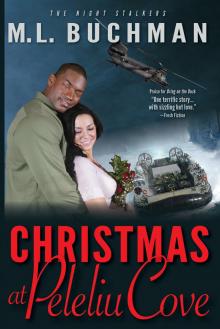 Christmas at Peleliu Cove
Christmas at Peleliu Cove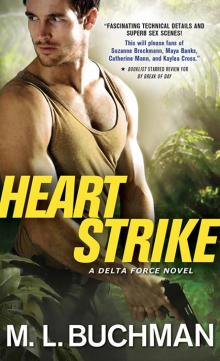 Heart Strike
Heart Strike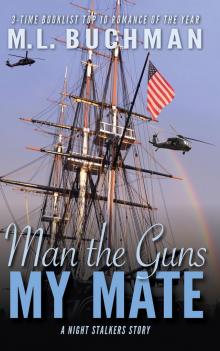 Man the Guns, My Mate
Man the Guns, My Mate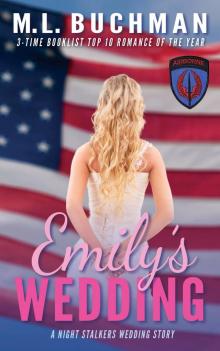 Emily's Wedding
Emily's Wedding Daniel's Christmas
Daniel's Christmas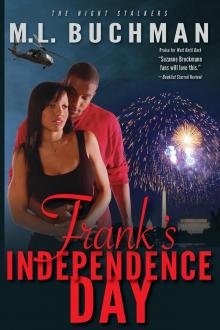 Frank's Independence Day
Frank's Independence Day The Phoenix Agency: The Sum Is Greater (Kindle Worlds Novella)
The Phoenix Agency: The Sum Is Greater (Kindle Worlds Novella)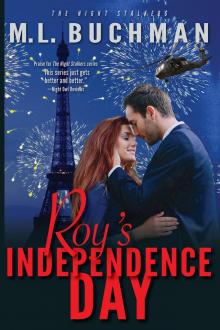 Roy's Independence Day
Roy's Independence Day